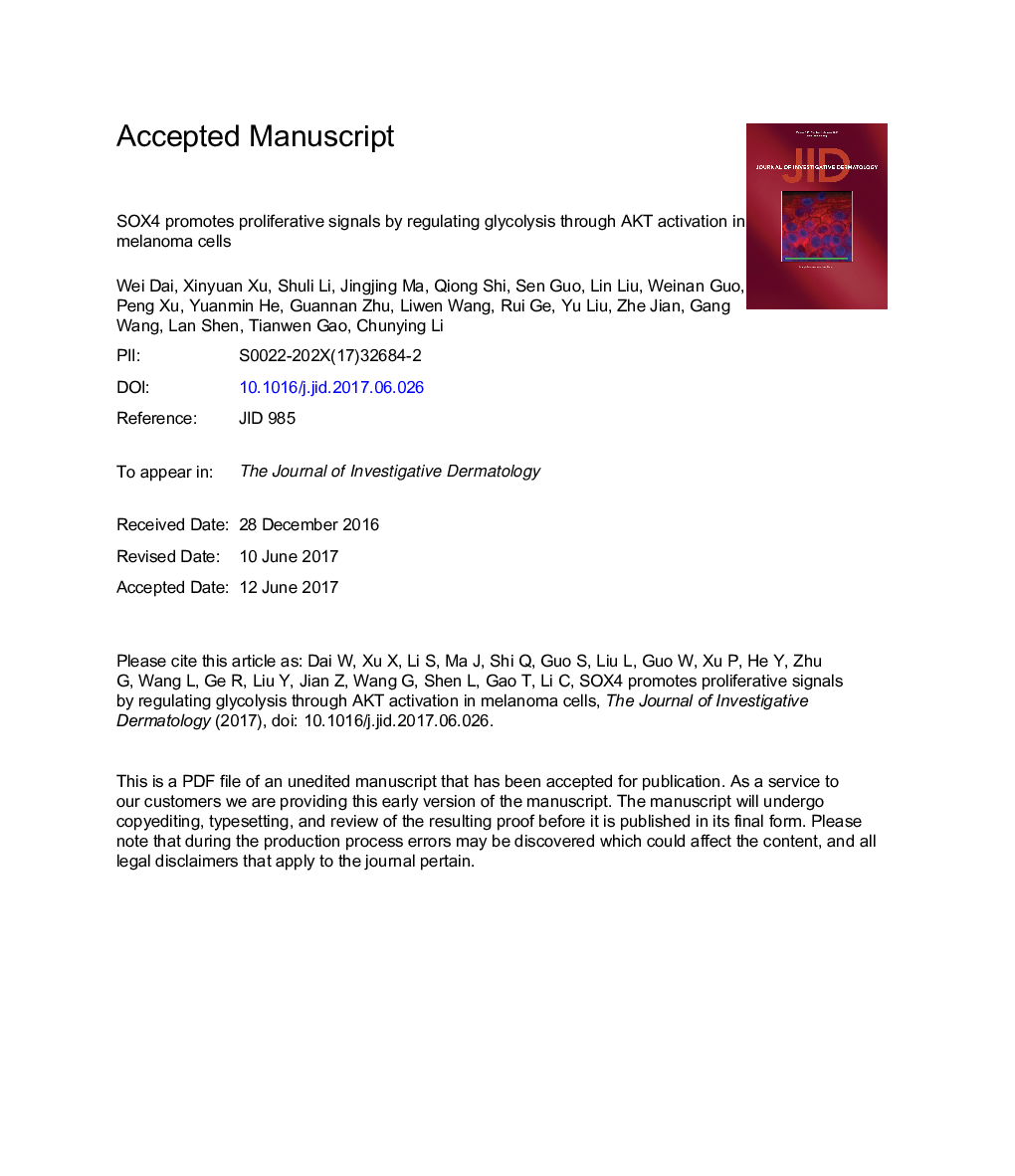| Article ID | Journal | Published Year | Pages | File Type |
|---|---|---|---|---|
| 5649160 | Journal of Investigative Dermatology | 2017 | 41 Pages |
Abstract
The sex-determining region Y-related high-mobility group box transcription factor 4 (SOX4) plays a fundamental role during embryogenesis and controls cell fate and differentiation. Recently, increased SOX4 expression has been reported in various cancer types, contributing to the progression and survival of cancer cells. However, the distinct functions and downstream targets of SOX4 remain to be fully elucidated. In this study, we initially found elevated SOX4 expression in melanoma. SOX4 regulates apoptosis and cell cycle arrest, affects glucose consumption and lactate production, and consequently, promotes melanoma cell proliferation. Moreover, we found that SOX4 rewires glucose metabolism by regulating the expression of glucose transporter type 1, hexokinase 2, and lactate dehydrogenase A at the transcriptional level. Mechanistically, SOX4 knockdown reduced activation of acutely transforming retrovirus AKT8 in rodent T-cell lymphoma and mTORC1, leading to an attenuated malignant phenotype. We also identified p70 ribosomal S6 kinase and eukaryotic initiation factor 4E-binding protein 1 as key substrates involved in the regulation of mTORC1 in melanoma cells. In conclusion, our study demonstrates the essential role of SOX4 in melanoma glycolytic metabolism through the acutely transforming retrovirus AKT8 in rodent T-cell lymphoma signaling pathway and highlights its potential as a therapeutic target in melanoma management.
Keywords
acutely transforming retrovirus AKT8 in rodent T-cell lymphomapyruvate kinase M2 isoformeukaryotic initiation factor 4E-binding protein 1quantitative real-time reverse transcriptase-PCRLDHAHK2PKM2PGC1αSOX4MITF4E-BP1GLUT1p70S6KqRT-PCRshRNAPI3Kp70 ribosomal S6 kinaseSmall interfering RNAshort hairpin RNAsiRNAAktphosphatidylinositol-3-kinaseLactate dehydrogenase AGlucose transporter Type 1hexokinase 2
Related Topics
Health Sciences
Medicine and Dentistry
Dermatology
Authors
Wei Dai, Xinyuan Xu, Shuli Li, Jingjing Ma, Qiong Shi, Sen Guo, Lin Liu, Weinan Guo, Peng Xu, Yuanmin He, Guannan Zhu, Liwen Wang, Rui Ge, Yu Liu, Zhe Jian, Gang Wang, Lan Shen, Tianwen Gao, Chunying Li,
